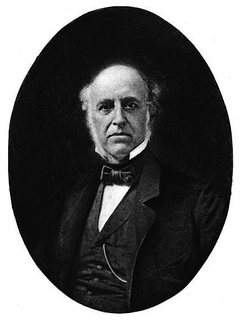A Quote by Edward Gibbon
Discussing the attempts of Augustus' generals to add to the extent of the Roman Empire early in his reign:
The northern countries of Europe scarcely deserved the expense and labour of conquest. The forests and morasses of Germany were filled with a hardy race of barbarians, who despised life when it was separated from freedom; and though, on the first attack, they seemed to yield to the weight of the Roman power, they soon, by a signal act of despair, regained their independence, and reminded Augustus of the vicissitude of fortune.
Quote Topics
Act
Add
Attack
Attempts
Augustus
Barbarians
Conquest
Countries
Deserved
Despair
Despised
Discussing
Early
Empire
Europe
Expense
Extent
Filled
First
Forests
Fortune
Freedom
Generals
Germany
Hardy
His
Independence
Labour
Life
Northern
Power
Race
Reign
Reminded
Roman
Roman Empire
Scarcely
Seemed
Separated
Signal
Soon
Though
Weight
Were
Yield
Related Quotes
Augustus: “You probably need some rest.” Me: “I’m okay.” Augustus: “Okay.” (Pause.) “What are you thinking about?” Me: “You.” Augustus: “What about me?” Me: “‘I do not know which to prefer, / The beauty of inflections / Or the beauty of innuendos, / The blackbird whistling / Or just after.’” Augustus: “God, you are sexy.” Me: “We could go to your room.” Augustus: “I’ve heard worse ideas.
The decline of Rome was the natural and inevitable effect of immoderate greatness. Prosperity ripened the principle of decay; the cause of the destruction multiplied with the extent of conquest; and, as soon as time or accident and removed the artificial supports, the stupendous fabric yielded to the pressure of its own weight. The story of the ruin is simple and obvious: and instead of inquiring why the Roman Empire was destroyed we should rather be surprised that it has subsisted for so long.
Misgovernment is of four kinds, often in combination. They are: 1) tyranny or oppression, of which history provides so many well-known examples that they do not need citing; 2) excessive ambition, such as Athens' attempted conquest of Sicily in the Peloponnesian War, Philip II's of England via the Armada, Germany's twice-attempted rule of Europe by a self-conceived master race, Japan's bid for an empire of Asia; 3) incompetence or decadence, as in the case of the late Roman empire, the last Romanovs and the last imperial dynasty of China; and finally 4) folly or perversity.
Augustus gradually increased his powers, taking over those of the senate, the executives and the laws. The aristocracy received wealth and position in proportion to their willingness to accept slavery. The state had been transformed, and the old Roman character gone for ever. Equality among citizens was completely abandoned. All now waited on the imperial command.
Well," Peter Van Houten said, extending his hand to me. "It is at any rate a pleasure to meet such ontologically improbable creatures." I shook his swollen hand, and then he shook hands with Augustus. I was wondering what ontologically meant. Regardless, I liked it. Augustus and I were together in the Improbable Creatures Club: us and duck-billed platypuses.
Germany will always do the minimum to preserve the euro. Doing the minimum, though, will perpetuate the situation where the debtor countries in Europe have to pay tremendous premiums to refinance their debt. The result will be a Europe in which Germany is seen as an imperial power that will not be loved and admired by the rest of Europe - but hated and resisted, because it will perceived as an oppressive power.

































